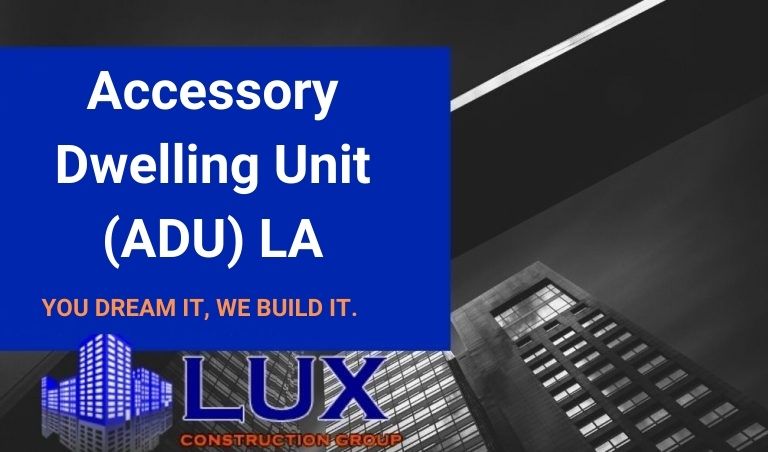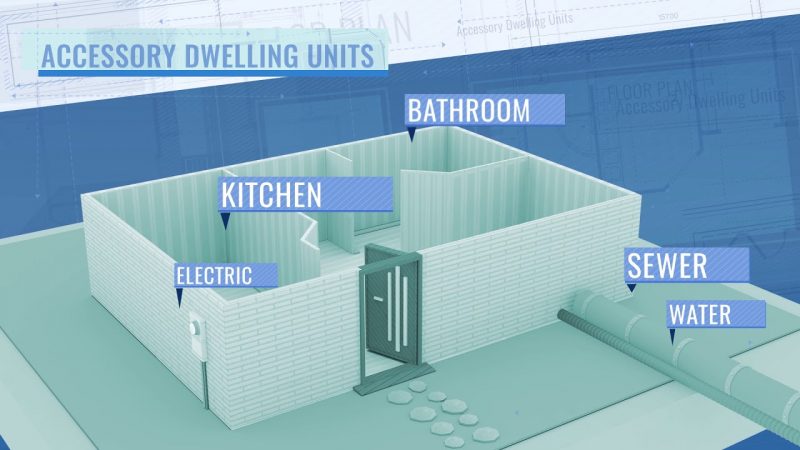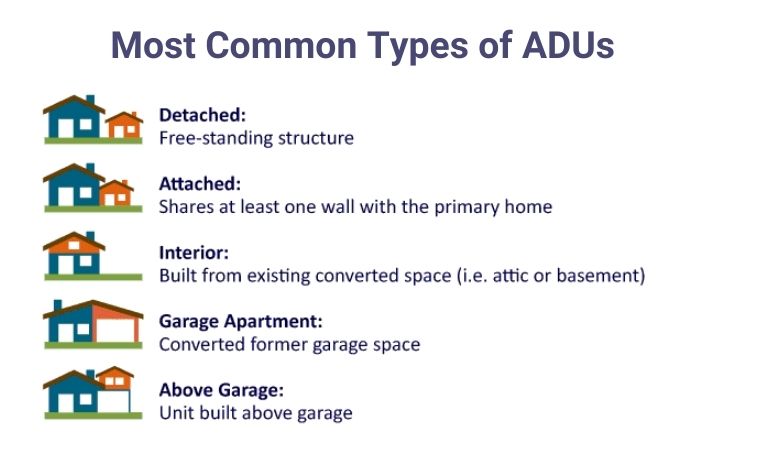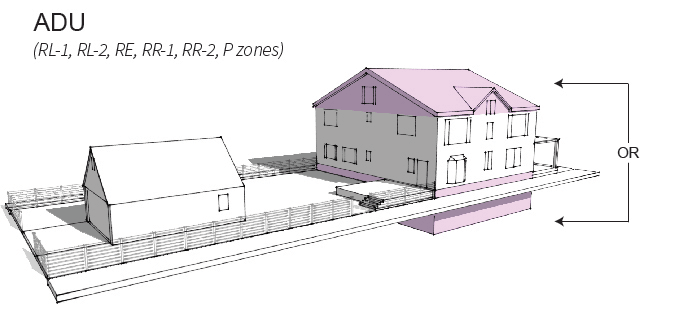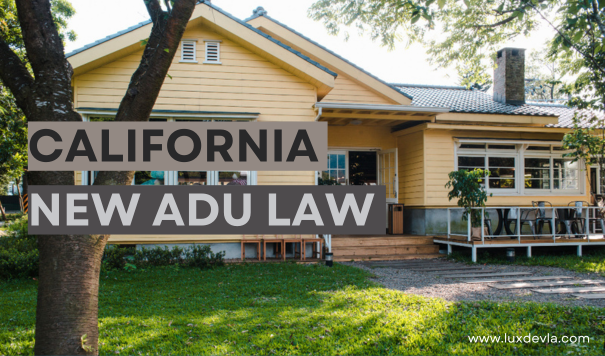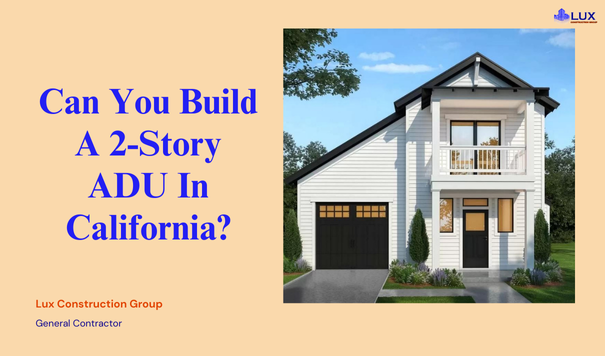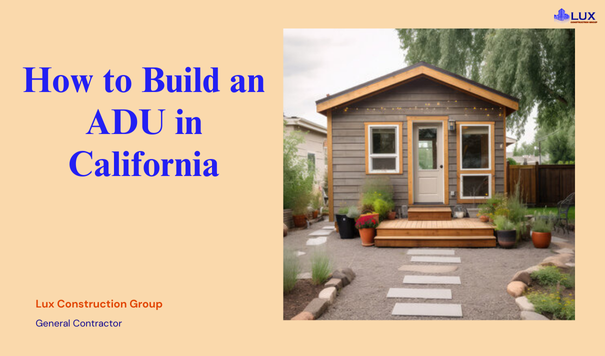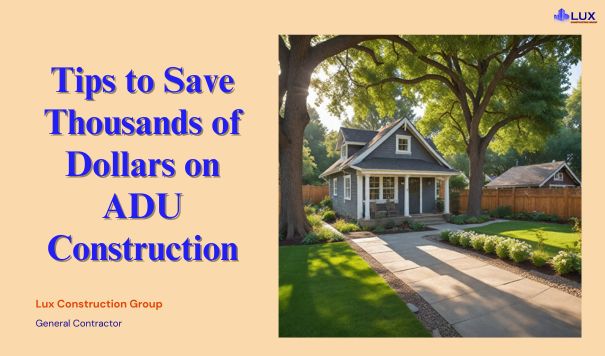Are you looking for the Best ADU Contractor in Los Angeles? Having 20+ years of experience, Lux Dev LA offers the most affordable ADU Construction & design services. Let us Design and Build your new ADU project today. Contact us for a FREE quote! Being a top-rated local ADU Contractor in Los Angeles, CA. We specialize in building, architecture, and engineering various types of ADU and garage conversion projects.
A small, yet smarter ADU construction will add value to your property. You can easily rent out this secondary space to have an additional source of financial stability. The extra master bedroom or a big living room can satisfy the needs of the extended family.
An additional dwelling unit building is a lot of work, from permitting to managing construction and budgeting. Skip the hassle and let our team of Los Angeles ADU builders do the work. Most people staying in Los Angeles are amazed to choose ADU as an additional space in their homes. With ADU construction you can convert a garage into a living or extra bedroom, and a basement into a small independent house.
Contents
- Accessory Dwelling Unit (ADU)
- ⭐ Types of ADUs in Los Angeles
- Detached new construction ADUs:
- Attached ADU
- Internal ADUs
- Basement conversion ADUs
- Addition ADUs or “bump-out ADUs”
- What do Additional Dwelling Units have in Common?
- ⭐ ADU Garage Construction Los Angeles – Benefits
- ⭐ ADU Construction Cost in Los Angeles?
- We provide Cost-Effective Additional dwelling units in Los Angeles
- Los Angeles ADU Construction – FAQs
- Will you need a permit?
- How much will it cost?
- ADU’s Blogs
- Everything You Need to Know About California New ADU Law
- Can You Build A 2-Story ADU In California?
- What is The $40,000 Grant in California for ADU?
- A Detailed Checklist for Building an ADU in Los Angeles
- ADU vs Room Addition: Which is right for you?
- Tips to Save Thousands of Dollars on ADU Construction
- Find Us On Map
Accessory Dwelling Unit (ADU)
An Accessory Dwelling Unit is a smaller residential unit built as an extension of the existing primary home. An ADU, or accessory dwelling unit, is a detached house built on the same property as the main house. It can be as large as 800 square feet and allow for extra living space. These are becoming a popular way to live in Los Angeles because of their affordability and small size, but they do require construction.
Earlier the dwelling houses were known as carriage or coach houses. It was a place to store things, much like a garage, and provide sleeping quarters for workers outside of the main residence.
ADUs gained popularity during the nuclear families( 4 members) became the trend with a simple calculation of each person occupying 250 square feet area. But today comparatively people have houses around 2500 square feet.
At present, ADU construction is the latest construction trend. However, the purpose of the building is to have extra space. The dwelling unit can be a separate one or two-story construction or can be internally connected to the home.
In the past, zoning laws typically restricted homeowners from building additional structures on their property, aside from garages and other storage sheds, but these restrictions have been loosened in many areas as more people have sought affordable housing options close to the city center.
A typical ADU consists of a bedroom, bathroom, and kitchen that can be as large as 800 square feet; this is much larger than most studio apartments. They are built off the main house so they don’t need to be connected by hallways or interior doors and are insulated from the noise of neighbors. The construction process requires building plans approved by the local government and can take anywhere between two months to a year to complete.
Also Check Out – ADU Garage Conversion Requirements in Los Angeles
⭐ Types of ADUs in Los Angeles
Some of the common structural forms of Additional dwelling units Architecture are:
-
Detached new construction ADUs:
It is a standalone dwelling separate unit providing complete privacy to the primary home. They are also known as backyard cottages, granny flats, laneway houses, or DADUs, depending on the jurisdiction.
Conversion of garage area into a bedroom or extra living room or a separate unit is termed as garage apartment or carriage houses. The garage construction doesn’t cover the green area.
-
Attached ADU
Attached to the main home by adding on to the existing primary dwelling, these types of ADUs are an add-on to the primary house. A family member or a close friend can stay in the internal ADU.Attached unit is constructed near the basement area.
-
Internal ADUs
The Internal ADU is constructed within the existing floor plan of the primary dwelling, the Upstairs ADU (is constructed within an existing upper level or on a second-floor addition, and the Basement ADU(is constructed within the basement level of the primary home).
-
Basement conversion ADUs
The basement area is converted into a beautiful living space by applying smart construction and energy-saving techniques. The basement apartments are commonly known as basement apartments, mother-in-law houses, in-laws’ suits, secondary suites, English basements, and accessory apartments. and a host of other names.
Also Read – Basement Construction in Los Angeles
-
Addition ADUs or “bump-out ADUs”
These ADUs are used to cover the green area and are normally constructed to use as outhouses. A small area is covered with wooden construction. The area can be used as pet houses, play areas, or storage areas.
We hope now that you know the main types of Accessory Dwelling Units, you can make an informed decision when choosing the right ADU for your needs.
What do Additional Dwelling Units have in Common?
Accessory dwelling units have distinguished designs to define, differentiate, and distinguish them from primary houses. The development challenges and ADU permit costs in LA California are almost the same. Some of the defined rules for constructing ADUs in Los Angeles are:
- A specified design area is allocated for the ADU construction. You need to check out with government agencies.
- A large range of municipal land use and zoning regulations differentiate ADU types and styles and dramatically affect their allowed uses
- The land area allocated in the permit must be used in constructing ADU. So, it puts several design and development restrictions.
- Consider the purpose while approving the design from a construction company keeping all necessities in mind.
⭐ ADU Garage Construction Los Angeles – Benefits
ADUs are a good idea for the tiny-house movement: the idea of living with less space and stuff by making smart design choices. They’re also great for homeowners looking to add that extra income from renting out rooms, or for people who want to bring in family members or partners who want to stay in the same place but not under the same roof.
The City of Los Angeles has been trying to incentivize ADUs to help alleviate some of the housing shortage issues we have here, as well as encourage more density within neighborhoods and help people build equity by having a separate housing unit on their property.
Accessory dwelling units (ADUs) are a smart, sustainable approach to urban living in Los Angeles. Being an incredibly affordable option for homeowners, other upsides include the –
- They can be built in as little as 4 months.
- They are great storage space.
- They can be built in any neighborhood.
- They’re relatively affordable compared to other housing options. The one caveat is that they require construction, but if you can swing it, an ADU is a great alternative to renting or buying a whole separate house.
- A detached ADU will need to be at least 10 feet from the main residence and 5 feet from any property lines.
- Additional living space is built either for rent purposes, for extended family members, or the home helpers.
- ADUs can provide fixed-income growth by renting the space.
- Adults on fixed incomes, young adults, and low-income households are always looking for small houses at affordable prices. You can help them by renting your well-constructed ADU.
- The ADUs averaging between 600 and 1000 square feet is sufficient for a family of 2 persons to live. Saving the constructed space, you can promote green areas nearby.
⭐ ADU Construction Cost in Los Angeles?
According to a recent study, the cost of adding an ADU to a property can run anywhere from $60,000 to $350,000+, depending on the size limit of the ADU. The final ADU cost is determined by factors such as the type of ADU being built (Attached vs Detached vs Garage Conversion), the accessibility of the building site and the quality of material specified.
The cost of a garage conversion includes the construction, which can be done in-house by an ADU contractor. The average cost of adu construction for a 2-car garage is $65,000-$90,000. It takes about two to three months to finish the project.
For the accessory dwelling Unit construction, you need to take a permit from the government authorities. Don’t worry, if you have decided to construct an ADU, look for an ADU Builder in Los Angeles with pre-approved plans.
Lux Construction Group can help you in taking the permit;
- We deliver a tailored service with an approved floor plan.
- These ADU designs and floor plans include rooftop decks, exterior staircases, expansive patios, abundant natural light, and stunning architectural elements.
- As a one-stop shop, we also build your ADU from the ground up, managing every element of construction for seamless, expedited project completion.
- Our team of the best ADU builders in Los Angeles can design a custom ADU with an interior and exterior that has all the features and aesthetics you want.
We provide Cost-Effective Additional dwelling units in Los Angeles
You can choose from our pre-approved ADU plans:
- One bedroom ADU Plan
- Two story ADU Plan
- Two bedroom, two story ADU Plan
- Garage conversion to bedroom plan
- One car garage conversion to bedroom
- Two car garage conversion to bedroom
- Basement conversion plan
Los Angeles ADU Construction – FAQs
-
Will you need a permit?
Yes, a permit from the department of building and safety is required for ADU construction in Los Angeles. The good part is, you can easily get the permit. The required area is required for the construction and a plan is to be approved for actual construction. As the design is complex due to the limited area available, a skilled ADU Contractor is required. Besides this, there are some basic requirements for ADU garage conversion in Los Angeles, California.
Once the project is built, homeowners will need to obtain a certificate of occupancy before anyone moves in. That means the structure will need to be inspected, and its electricity, plumbing, and heating system will all need to be in working order.
-
How much will it cost?
Cost estimation is a significant factor for homeowners. The average estimated cost of an ADU construction in Los Angeles is nearly $150,000—though the median was $86,500. Homeowners can take a loan for the construction.

